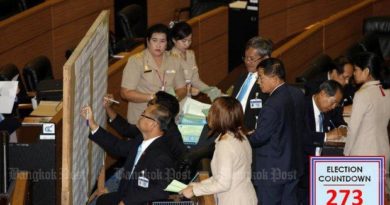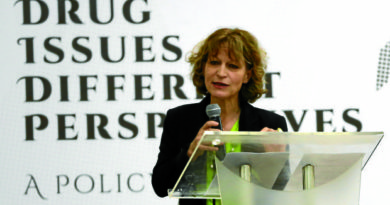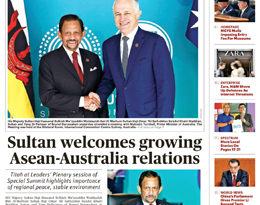Opinion | In Search of Total Diplomacy
Diplomacy is not just the domain of professional negotiators and state officials; it is a multi-layered art form that encompasses all levels of society. At its heart, diplomacy is about a government’s strategy in managing international affairs, aligning with the interests of its people, and garnering public support.
State diplomacy remains the cornerstone. As the principal actor in international relations, the state negotiates, manages relationships, and resolves conflicts between nations. With the world becoming more interconnected and global challenges increasingly complex, effective state diplomacy is crucial. It’s about building relationships and partnerships, finding common ground, and ensuring peace and prosperity for all nations.
Beyond the state level, parliamentary diplomacy plays a vital role in enhancing international cooperation. Through this, parliamentarians from different countries collaborate to increase mutual understanding, improve government accountability, and boost the democratic legitimacy of intergovernmental institutions. This form of diplomacy is about building bridges and adding a parliamentary perspective to global governance, aiming to promote peace across borders.
Party diplomacy, though less formal, is equally significant. Inspired by the notion that “politics stops at the water’s edge,” it demands that political parties build consensus on foreign policy issues, enabling the country to present a unified front. This approach fosters strategic political trust between parties from different nations, contributing to international peace and stability.
Then there’s military diplomacy, which uses defense resources and military networks to achieve foreign policy objectives peacefully. This strategy aims to co-formulate and implement security policies while establishing stable, long-term international relations in the field of defense.
Military-to-military dialogues and interactions play an increasingly vital role in preventing miscalculation and promoting interoperability between the militaries, while fostering cultural exchange and understanding and offering an opportunity to expand each nation’s capabilities.
Lastly, people diplomacy represents the grassroots level of international engagement. This can be a top-down approach, where government-initiated programs involve citizens pursuing foreign policy objectives. Alternatively, it can be a bottom-up approach, where non-state actors independently develop initiatives without direct alignment with their home country’s foreign policy. This form of diplomacy is about promoting mutual understanding and trust among citizens and civil society groups from different nations.
Hence diplomacy in the modern era is a comprehensive, multi-dimensional endeavor. It requires collaboration at all levels—from state to citizen—to foster a more peaceful, secure, and prosperous world. Each form of diplomacy contributes uniquely to this goal, demonstrating that diplomacy is not just the art of negotiation but the practice of building a better world together.
As Cambodia navigates an increasingly complex geopolitical and geoeconomic landscape, enhancing national capacity to implement a holistic “total diplomacy” approach has become imperative.
This strategy integrates various diplomatic forms to bolster Cambodia’s standing on the international stage.
Under the leadership of Samdech Hun Manet, Prime Minister, Cambodia has taken significant strides in economic diplomacy. His proactive engagement, through numerous overseas trips and hosting foreign dignitaries from both public and private sectors, underscores a commitment to strengthening Cambodia’s economic ties globally.
The Cambodian People’s Party (CPP) has been proactively involved in fostering dialogues and consultations with other political parties at both bilateral and multilateral levels. This active engagement plays a pivotal role in establishing confidence-building measures and advancing preventive diplomacy, in some cases promoting crisis management.
Parliamentary diplomacy, too, has seen a surge in activity and focus. Samdech Khuon Sudary, the President of the National Assembly, has been pivotal in this regard, championing initiatives that promote good neighborliness and address critical global issues such as peace, gender equality and sustainable development.
The election of former Prime Minister Samdech Hun Sen as the President of the Senate in April represents a significant milestone in the evolution of Cambodia’s parliamentary diplomacy.
Renowned as the architect of the nation’s foreign policy, Samdech Hun Sen brings a wealth of experience that will further refine and enhance Cambodia’s strategic position in the region.
Samdech Hun Sen is positioning Cambodia as a ‘bridging’ and ‘responsible’ actor within the Mekong region. His diligent engagement efforts with Myanmar’s leaders aim to cultivate political dialogue and reconciliation amid the country’s protracted crisis, with the aspiration of restoring peace and stability not only in Myanmar but across the entire Mekong region.
Additionally, Hun Sen has been a strong proponent of the ambitious Funan Techo Canal mega-project, expected to significantly bolster Cambodia’s economy, economic security, and independence. This project exemplifies the strategic utilization of an underexploited waterway to link regional economies, open new avenues for investment, and facilitate international trade, thereby enhancing Cambodia’s role as a key player in regional connectivity and development.
In the realm of military diplomacy, the release of the Defense White Paper in 2022 underlines cooperative security, capability development, and international collaboration to tackle non-traditional security threats. This marks a significant advancement in aligning Cambodia’s defense strategy with broader regional and international security norms.
Cambodia’s evolving defense strategy is characterized by a focus on enhancing small state security through a multifaceted approach. This approach includes cooperative security, robust international cooperation, and comprehensive people-centered defense modernization.
Despite notable progress, Cambodia’s people diplomacy encounters significant challenges, largely due to limited resources. Both government-led initiatives and grassroots, bottom-up efforts, including Track-Two diplomacy, have not kept pace with the fast-changing international development.
There is a critical need to invest in the think tank community so that Cambodia can better articulate and share its narrative globally, thereby reinforcing its strategic objectives and strengthening its position on the international stage.
Moving forward, it is crucial for Cambodia to develop an integrated approach to total diplomacy. By leveraging all forms of diplomacy—state, parliamentary, party, military, and people—Cambodia can more effectively advance its core national interests and agency. This integrated approach will help Cambodia navigate complex geopolitical and geoeconomic landscapes a well as secure a prosperous and stable future for the Kingdom. Building strategic foresight and diplomatic capacity on all fronts is a must.
Chheang Vannarith is Chairman of National Assembly Advisory Council.

@[email protected]



 Memento Maxima Digital Marketing
Memento Maxima Digital Marketing






